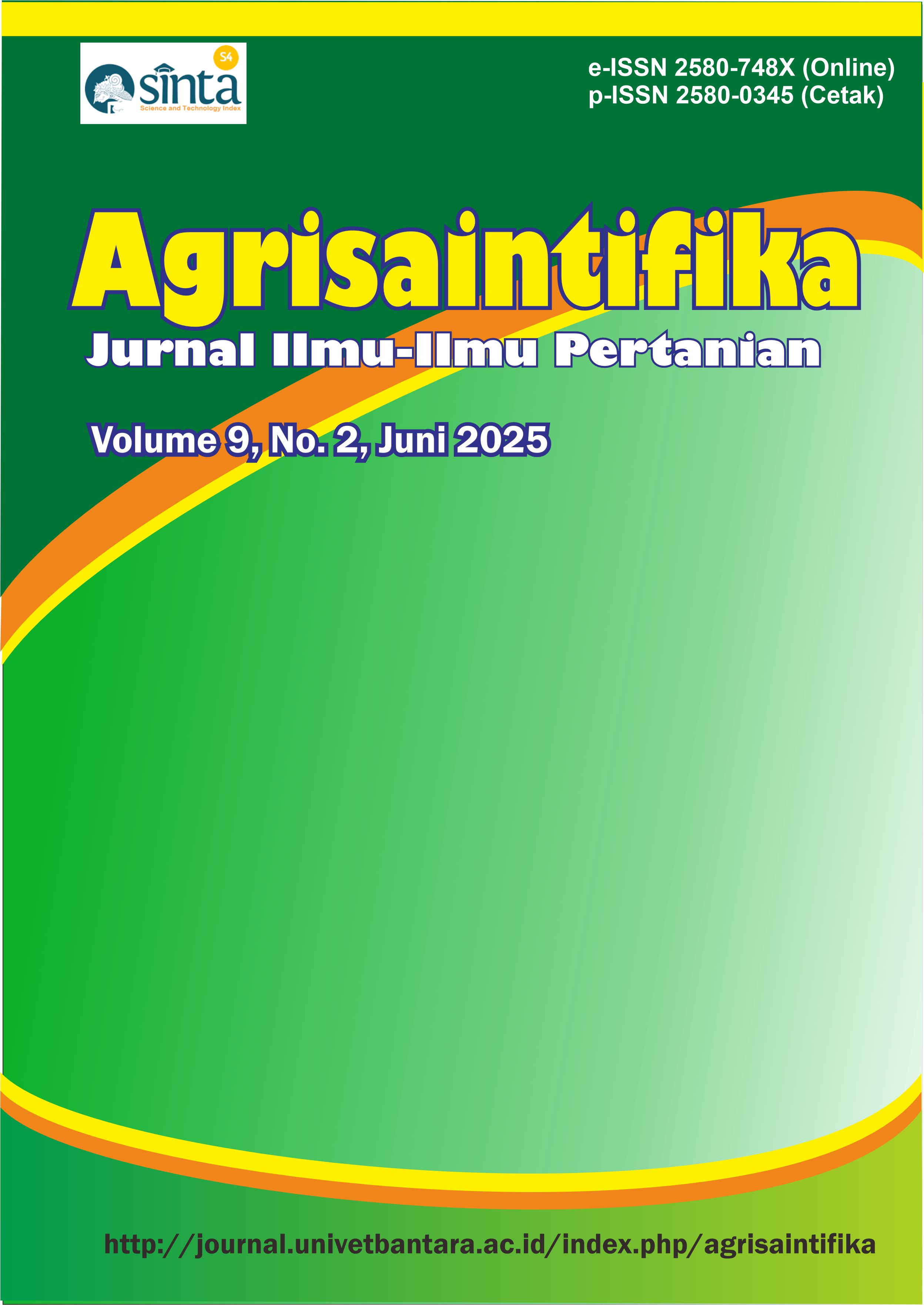EFFECTIVENESS OF INORGANIC FERTILIZER NPK (16-16-16) ON CABBAGE PLANTS
DOI:
https://doi.org/10.32585/ags.v9i2.6497Abstract
Plants can utilize nutrients efficiently through interactions with various environmental factors. The balanced application of macronutrients is crucial for supporting optimal plant growth. This experiment aimed to evaluate the effectiveness of NPK (16-16-16) inorganic fertilizer in promoting the growth and yield of cabbage, as well as to assess its agronomic efficiency and economic feasibility. The treatments consisted of seven fertilization levels: no inorganic fertilizer (P0), reference inorganic fertilizer (P1), 0.5 dose (117 kg/ha) of test fertilizer (P2), 0.75 dose (176 kg/ha) (P3), 1.00 dose (235 kg/ha) (P4), 1.25 dose (293 kg/ha) (P5), and 1.5 dose (352 kg/ha) (P6). The results showed that the application of NPK (16-16-16) significantly improved plant growth (height and number of leaves) and cabbage yield (per plant, per plot, and per hectare) compared to the control treatment. Although no significant differences were observed among the NPK treatments, the application of half the recommended dose of NPK (16-16-16) provided the highest economic return. The recommended fertilizer dose for cabbage is 110 kg/ha, applied in two stages: 50% at one week after transplanting (WAT) and the remaining 50% at four WAT.
Downloads
Downloads
Published
How to Cite
Issue
Section
License
Copyright (c) 2025 Hafith Furqoni

This work is licensed under a Creative Commons Attribution-ShareAlike 4.0 International License.




